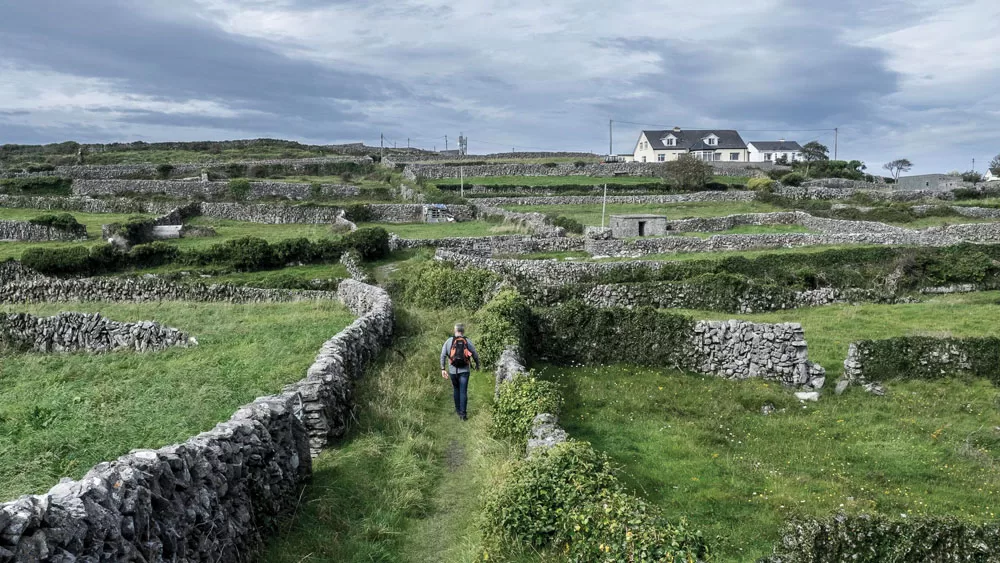When planted, potatoes are laid out in a particular pattern, like the 5 side of a die. Four corners of a square, each potato a foot apart, and then one potato in the centre. From a distance, you only see three parallel lines, the middle one slightly out of sync with the others. But up close, there are boxes, five potatoes in each, like a stamp, repeated over and over and over. I was told to lay each potato a...

